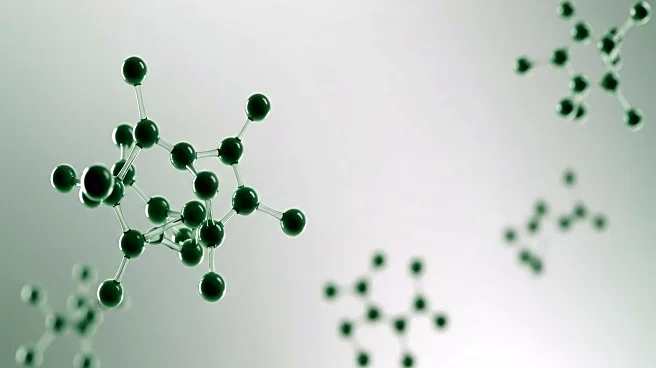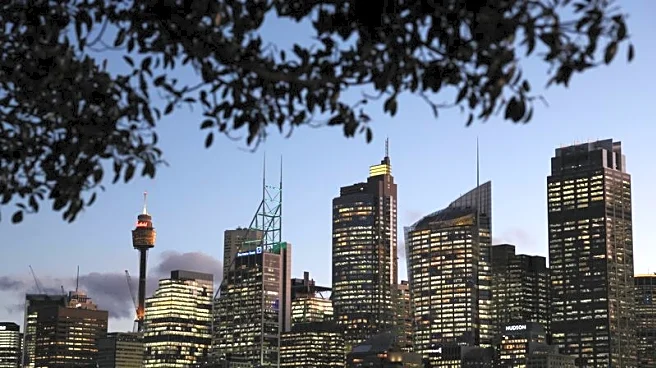What is the story about?
What's Happening?
Saudi Arabia's biodegradable plastic market is projected to grow from $78.65 million in 2024 to $221.98 million by 2033, with a compound annual growth rate of 12.22%. This growth is driven by increasing environmental concerns and demand for sustainable alternatives to single-use plastics. The market is concentrated in major cities like Riyadh, Jeddah, and Dammam, where government initiatives and consumer demand are fostering adoption. The Saudi government has implemented policies to reduce plastic waste and promote sustainable materials, influencing industries such as packaging and agriculture to seek eco-friendly solutions.
Why It's Important?
The expansion of the biodegradable plastic market in Saudi Arabia reflects a broader global shift towards sustainability and environmental preservation. As the country aligns with international sustainability goals, this growth could influence other nations to adopt similar measures. The increased demand for biodegradable plastics in packaging and agriculture sectors highlights a significant move towards reducing plastic pollution. This shift not only benefits the environment but also opens new opportunities for innovation in material science and manufacturing techniques, potentially setting a precedent for other industries worldwide.
What's Next?
Saudi Arabia's focus on biodegradable plastics is expected to continue, with further government support and strategic initiatives aimed at enhancing recycling and waste management. The market may face challenges such as high production costs and limited infrastructure for composting, but ongoing innovation and policy support could help overcome these obstacles. As awareness and consumer acceptance grow, the market is likely to see increased investment and development, further solidifying Saudi Arabia's role in the global push for sustainable materials.
Beyond the Headlines
The shift towards biodegradable plastics in Saudi Arabia may have deeper implications for global environmental policies and practices. As the country invests in sustainable alternatives, it could influence international standards and certifications for biodegradability, potentially leading to more unified global regulations. This development also raises ethical considerations regarding the balance between economic growth and environmental responsibility, prompting discussions on the long-term impacts of industrial practices on ecosystems.

















